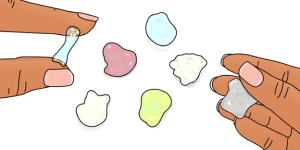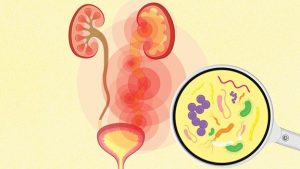You know that feeling when your hormones are out of whack and you just don’t feel like yourself?
The irritability, cravings, insomnia, fatigue – it can throw you for a loop. The good news is that the foods you eat every day have a huge impact on your hormonal health and balance. That’s right, you have more control over those pesky hormones than you might think.
Are you ready to dive into an exciting and informative piece of writing? Buckle up and get ready to expand your knowledge!

How to Optimize Female Hormone Balance Through Diet?
The key is understanding which foods support or hinder your body’s natural hormone production and communication. For example, did you know that sugar, refined carbs, and alcohol can spike and crash your insulin and cortisol levels? Or that healthy fats like avocados and coconut oil provide the building blocks for many hormones? It’s amazing how much power you have with your fork and knife.
In this blog post, you’ll learn some simple diet hacks to optimize your female hormone balance the natural way. Small changes to your daily menu can help you feel more energetic, improve your mood, reduce PMS symptoms, and maybe even boost your libido.
So, if you’re tired of being a slave to your hormones, keep reading to discover how the right foods can help you take back control and feel like yourself again. The solutions may surprise you!
The Estrogen-Testosterone Balancing Act
The balance between estrogen and testosterone is essential for female hormonal health and well-being. Estrogen is the primary female sex hormone, responsible for your menstrual cycle and fertility. Testosterone, often thought of as the male sex hormone, is also found in women and is important for sex drive and muscle mass.
Too much estrogen can lead to symptoms like bloating, mood swings, and irregular periods. Too little estrogen often causes hot flashes, night sweats, and vaginal dryness. On the other hand, excess testosterone may cause acne, facial hair growth, and hair loss. Low testosterone contributes to low libido and decreased stamina.
What you eat directly impacts your estrogen-testosterone balance. Foods high in healthy fats like avocados, nuts, and seeds help boost testosterone. Cruciferous veggies such as broccoli and cauliflower contain compounds that help metabolize excess estrogen. Lean proteins such as fish and eggs provide the building blocks for hormone production.
Limiting sugar, processed carbs and alcohol keeps insulin levels stable, preventing excess estrogen. Using natural household and beauty products avoids exposure to xenoestrogens, chemicals that mimic estrogen in the body. Managing stress through exercise or meditation inhibits cortisol, a hormone that competes with progesterone and testosterone.
A balanced diet, detoxifying your environment, and practicing self-care are three effective ways to support your body’s estrogen-testosterone equilibrium. Give your hormones the TLC they deserve and you’ll feel more vibrant and alive. After all, healthy hormones = a healthy, happy you!
Foods That Help Balance Hormones
The food on your plate has a huge impact on your hormones. Choosing the right diet can help balance estrogen, progesterone, and other hormones to keep your cycle regular and mood stable.
Foods That Help Balance Hormones
Focus on whole foods like:
Cruciferous vegetables: Broccoli, cauliflower, kale, and Brussels sprouts contain compounds that help metabolize excess estrogen. Aim for 1 to 2 cups a few times a week.
Healthy fats: Nuts, seeds, olive oil, and avocados provide good fats your body needs to produce hormones. Have a handful of nuts or 1/2 an avocado daily.
Leafy greens: Spinach and Swiss chard are packed with magnesium, which helps regulate stress hormones like cortisol. Add to salads, or smoothies, or have a side of sautéed greens.
Lean protein: Choose hormone-friendly options like fish, chicken, beans, and eggs. Have with each meal to provide the amino acids needed for hormone production.
Limit sugar, refined carbs, and red meat which can spike insulin and negatively impact hormones. Stay hydrated, manage your stress, and get enough sleep for hormone health too.
Following an anti-inflammatory diet with these nutritious foods will help get your hormones back on track. Be patient through the transition and you’ll feel the difference in your mood, cycles, and overall wellbeing. Your hormones will thank you!
Meal Plans for Hormonal Harmony
To keep your hormones humming along in harmony, focus on eating balanced, nutritious meals with plenty of healthy fats, lean proteins, and high-fiber carbs. Some meal plans to try:
Option 1: Mediterranean-inspired
This diet is high in veggies, fruits, whole grains, legumes, and olive oil—all of which are hormone-friendly. A sample day:
Breakfast: Greek yogurt with granola, fruit, and nuts
Lunch: Lentil soup, salad with chickpeas and feta
Dinner: Grilled fish, quinoa, roasted broccoli with lemon and olive oil
Option 2: Paleo-ish
Follow a Paleo template but include healthy full-fat dairy and legumes. Focus on high-quality, organic ingredients. A sample day:
Breakfast: Eggs scrambled with veggies and avocado
Lunch: Turkey burger lettuce wraps with mango salsa
Dinner: Baked chicken thighs, sweet potato, green beans with almonds
Flexitarian
Go meatless a few days a week. Get your protein from eggs, dairy, legumes, and plant-based sources. A sample flex day:
Breakfast: Oatmeal with peanut butter, banana, flax and chia seeds
Lunch: Black bean burritos with salsa and guacamole
Dinner: Lentil bolognese over zucchini noodles
The key is to choose a plan that works for your needs and tastes and stick to it. Keep portions moderate, limit excess sugar and processed carbs, stay hydrated, and make sure to use healthy fats for satiety and hormone balance.
Eating this way can help reduce symptoms like irregular periods, mood swings, and low libido and improve overall well-being for women. With the right diet and self-care, you’ll be well on your way to hormonal harmony.
After reading this, you now know that what you eat has a huge impact on your hormones and how you feel every day. The next time you’re deciding between a burger and a salad or thinking of skipping breakfast, remember that your choices shape your hormone health and mood. You owe it to yourself to make choices that support your body.
Even small changes to reduce sugar, increase good fats, and eat more whole foods can help get your hormones humming. You have the power to influence your health and happiness through diet. Use that power to nourish yourself with delicious, hormone-balancing foods. Your body and mind will thank you for it!







